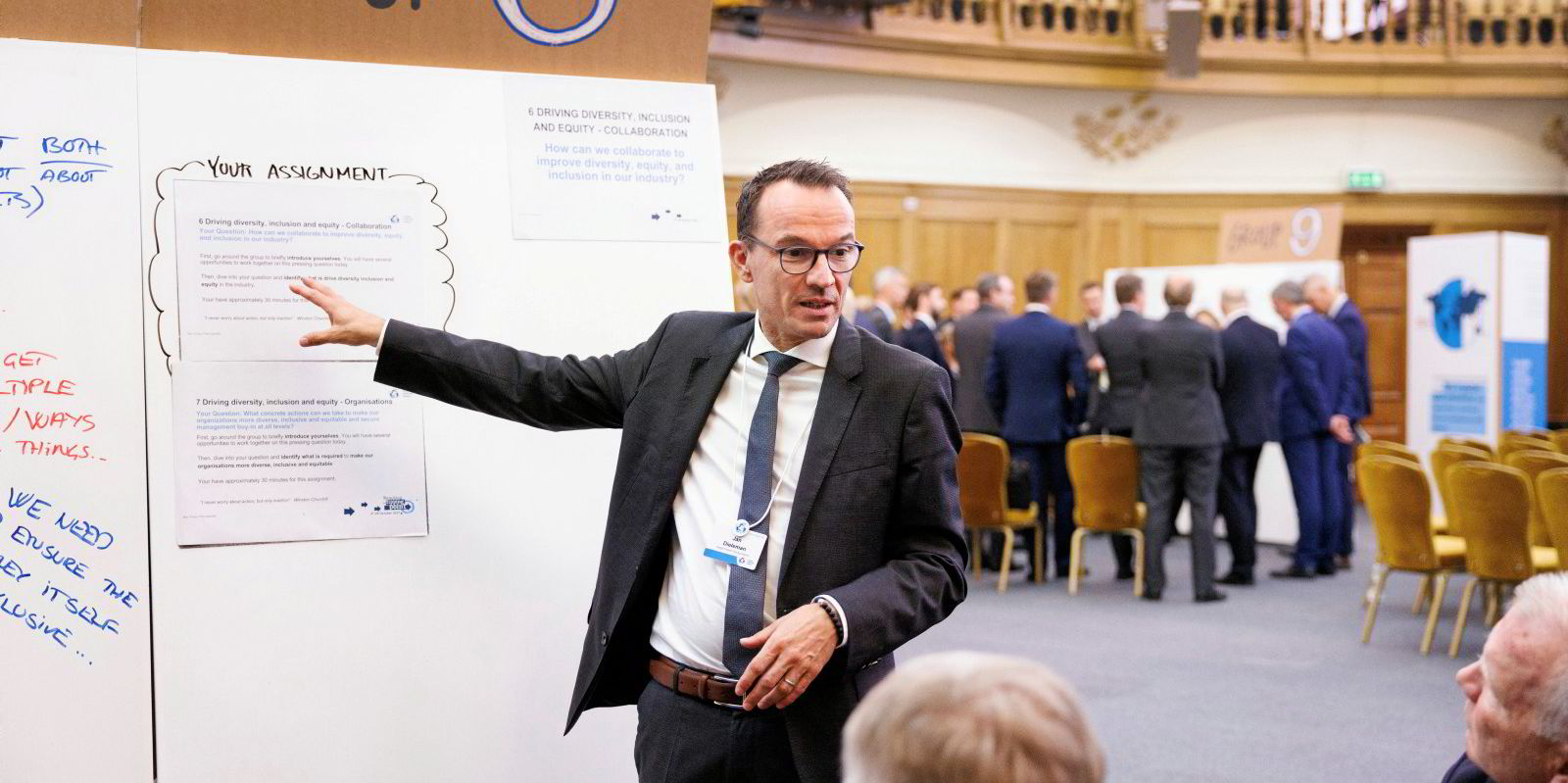From: Jan Dieleman, President of Cargill Ocean Transportation
To: The Trustees of the TradeWinds pension fund
This article is part of a series written by people across shipping in response to this question about how to deploy a hypothetical TradeWinds Sustainable Shipping Fund:
How, where and why would you invest $1bn for the best return in sustainable shipping, as the industry grapples with the need to cut carbon emissions, improve efficiency and keep cargoes moving in a world facing multiple economic and political challenges? The investment will be made now and ideally held for the next seven years to the end of the decade. As an added bonus, give one policy or regulation you would like to implement from 1 January 2023 to benefit shipping?
Dear Trustees,
I am excited to hear about your plan to invest $1bn in sustainable shipping. Here is my suggestion and, lucky for you, it is free of charge.
First, the good news: The technologies to get us well on the way are already here, and the business case is rock solid. Shipping goods sustainably means lowering fuel costs, improving efficiency, and limiting reputational, regulatory and environmental risk. Companies that do this right — and do it first — will achieve a significantly improved return on investment.
Here is how Cargill, as a global risk-management company with 157 years of experience and the world’s leading dry bulk freight shipper, would advise you to allocate your funds in the sustainable shipping sector:
1. Short-term no-brainers (1/3): This includes digitalisation to make sure vessels are always as full as possible, take the most efficient routes and use energy-saving devices such as LED lights and special paints that keep their hulls smooth. These are proven technologies. Cargill is already investing in them. Based on the returns, we advise you to do the same.
2. Medium-term, well-informed investments (1/3): we are also funding pilot projects with new technologies such as wind-assisted propulsion (using sophisticated sails to drive down fuel use, cost and emissions) and renewable biofuels. Based on successful trials, we believe that these approaches will soon help the industry make further progress.
3. Longer-term, high risk/high payoff bets (1/3): Further down the road, we see futuristic fuels such as hydrogen or synthetic biofuels, and even next-generation nuclear reactors, which promise to be smaller, cheaper and safer than current models. These are by no means sure things but, if successful, they could be massive gamechangers.
Changing global systems is a complicated, long-term process. There is no silver bullet. No company or country can do it by itself. That is why our best counsel to you is to maximise your investment by investing in a range of solutions and — just as importantly — partnerships. We should encourage them to keep up the good work to advance that agenda.
To get things moving, investors, shipping companies, industry associations and governments must come together to change the incentives. That can mean carbon-pricing mechanisms, ambitious industry standards for ships and fuels, or simply persuading industry players that the time for action is now.
But once again, we do not need a miracle. The building blocks for progress are here. There is a big win on the table, and it is ready for the taking. What we need now is investment to accelerate the transition.
We cannot wait to get started and look forward to receiving your $1bn cheque.
Read more
- Shipping must cut fossil fuel use in half by 2030, Maersk Centre says
- Hansen resurfaces at Maersk Tankers in partnerships role
- Lila Global considers spot market to be its playing field
- Jesper Bo Hansen leaves ZeroNorth after just nine months
- Shipowners Ofer and Marinakis watch nervously as World Cup kicks off in container stadium



